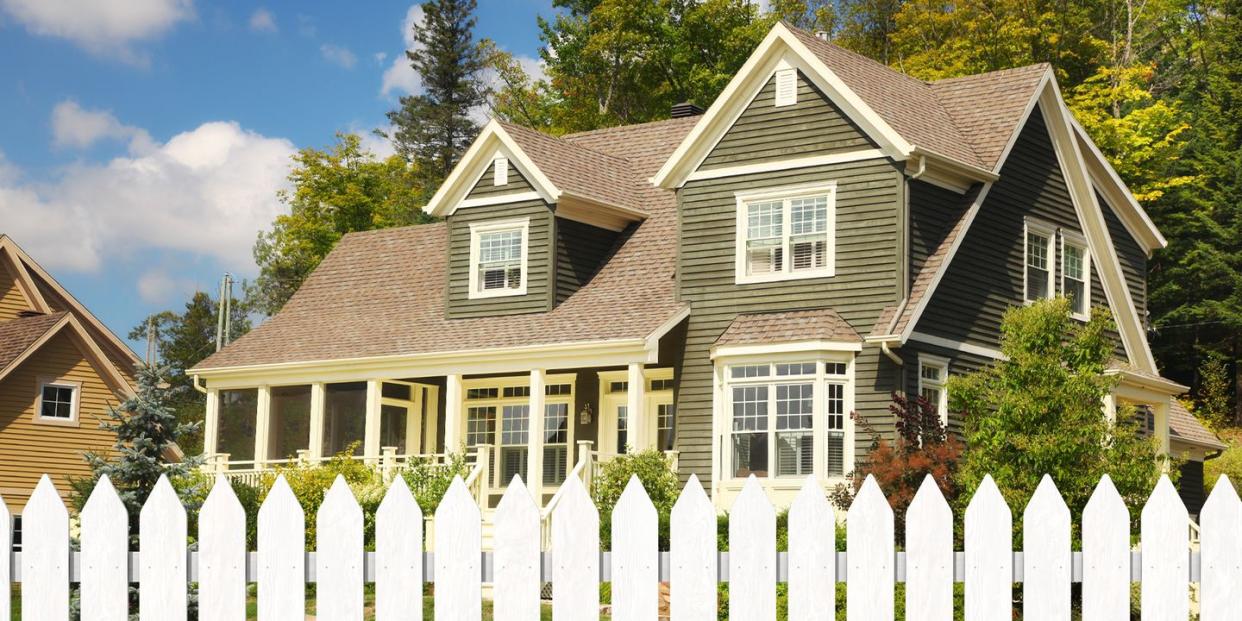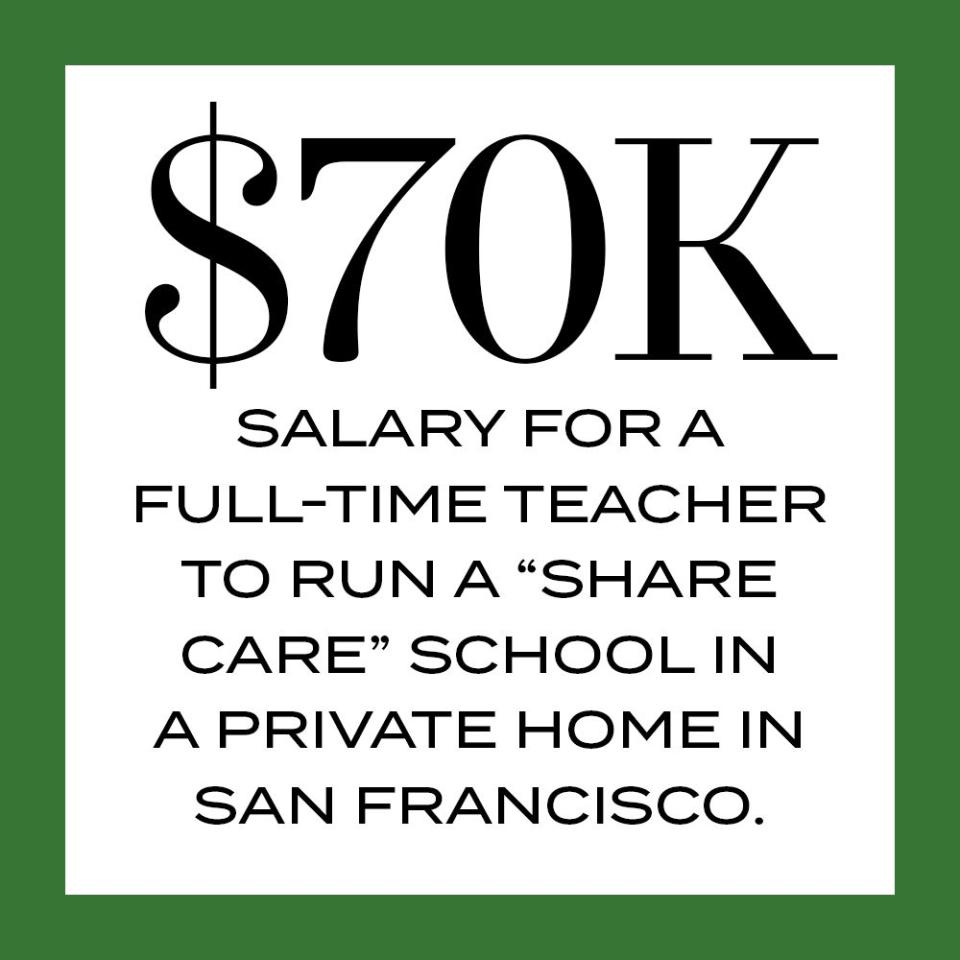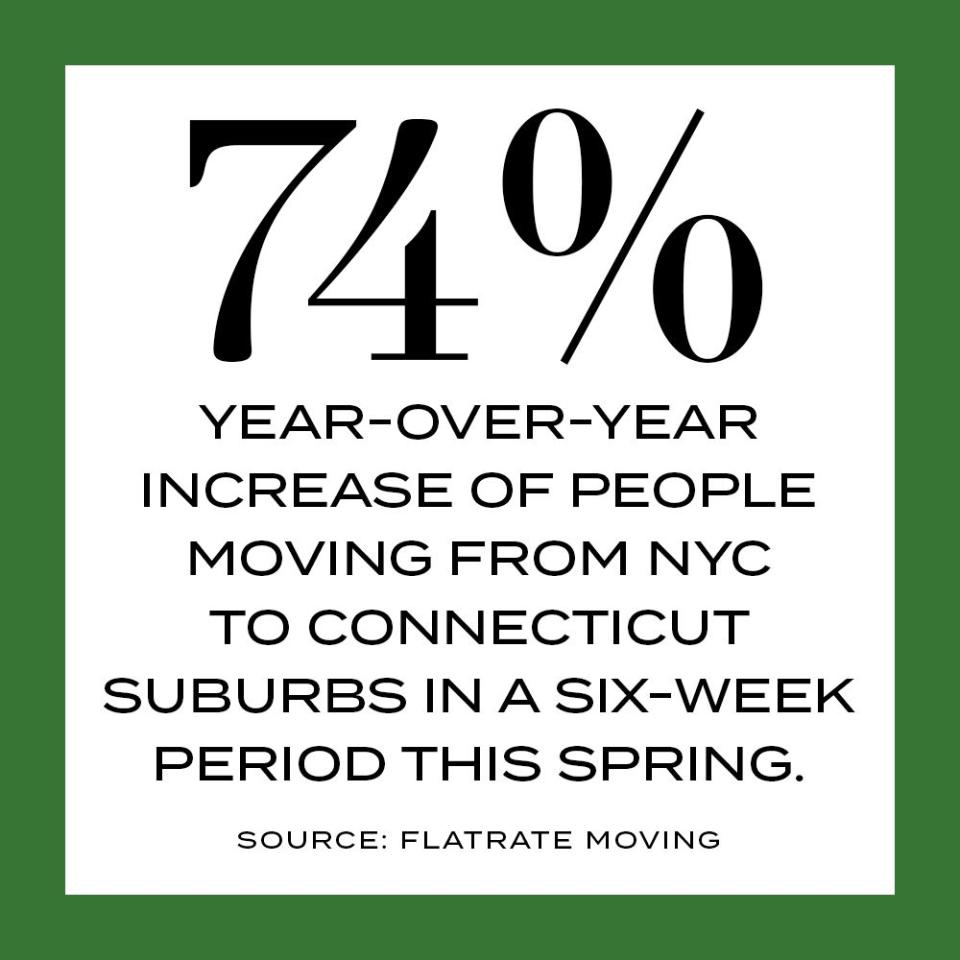How Much Money Are the Rich Willing to Spend to Feel Normal This Fall?

Since she decamped to her family’s home in East Hampton with her husband and three children, the youngest of whom was born in March, Christina Lewis has spent most of her time doing mental gymnastics. Facing so much uncertainty about, well, just about everything, “I think I have considered every possible option about the fall and what our life could look like,” says the philanthropist and founder of All Star Code, a nonprofit focused on teaching computer science to young men of color.
The options she has considered include: leaving New York City and staying in the Hamptons permanently; buying or renting her own place on Long Island (or somewhere farther away); applying to local public or private schools on the East End, or hiring a private tutor for her school age children, or homeschooling them herself while deferring paying the tuition at the Manhattan private school where her children are currently enrolled.

Families across the country face similar quandaries, though most cannot afford to relocate and hire teams of tutors to smooth the way. And even those like Lewis (her late father, Reginald F. Lewis, was the first Black American to build a billion-dollar company) who can foot the bill are asking: How far can money go to reconstruct a sense of normality in these profoundly abnormal and disorienting times?
Let’s start with the ultimate parental fantasy of the coronavirus age: a real, in-person school day. Now that the verdict is in that virtual learning is a poor substitute for the old-fashioned classroom, there is nothing some parents want more than for September to feel like a regular back-to-school experience. To realize that dream, families are making all kinds of bets.
For instance, the private Palm Beach Day Academy in Florida, which says it is planning for a return to in-person learning in the classroom this fall, has seen a 105 percent increase in applications since the start of the pandemic. Seventy-eight percent of the applicants are from the Northeast; 60 percent are from New York City, according to school officials.
To adapt to pandemic life, the $30,000-a-year school, which has two campuses, will offer a buffet of learning options. “There will be an at-home version that involves live synchronous classroom experiences so that every student—whether on campus or at home—has the opportunity to learn in real time,” says Stephanie Filauro, director of admissions.
One mother, who asked not to be identified, decided to move her family from their apartment in New York City to a house in Palm Beach when her child was accepted at the academy. She did so even as the Sunshine State was seeing a surge in Covid-19 cases. The calculus, she explained, was that no matter what happened in the fall, at least her family would be able to spend more time outdoors. “I was afraid there would be nothing for the kids to do in the city.”
“I don’t know if parents are looking for normality, but they are looking for a school that is safe for campus learning,” says Marcelle Langendal, faculty chair at Hayground School, a private school situated on a 13-acre campus in Bridgehampton, Long Island (tuition: $27,000 for pre-K through 8th grade).
After Hayground announced it would reopen this fall, it received 45 new applications from families from the New York City area, up from just six the year before. Nearby, in East Hampton, Avenues Studios, a new offshoot of the $56,000-a-year Avenues school in Manhattan, will open for students in 5th through 11th grades.

Some parents are rethinking established school altogether, opting for a DIY model—a tantalizing arrangement for those worried about joining any kind of large group setting before there’s a coronavirus vaccine. It’s also as ironclad a plan as you’ll get in the face of a global pandemic.
That was the thinking of four families in San Francisco who were dissatisfied with their school’s reopening plan. So instead they’re starting their own “share care,” creating a makeshift classroom in one family’s home and using the back yard of another’s for outdoor play. And they have hired a Montessori teacher for the 8:30 a.m. to 4:30 p.m. schoolday.
“With so many unknowns, it feels significantly more safe to control the physical environment,” one of the parents, an HR executive whose third bedroom is being used as the classroom, said in July. “It’s less about buying normality,” she said, “than about a co-op arrangement, because it ends up being less expensive for us and better pay for the teacher.” (The teacher will be paid $70,000 a year.)
The summer of 2020 was a dry run for private, parent-organized activities, with the advent of the homegrown camp, which brought two much-needed elements of normal life back into the picture: community and camaraderie.
On one Long Island estate in July and August, a handful of young children gathered for a rotating slate of activities: swimming, sports, story time, and music, all supervised and run by counselors hired by the families. “I personally don’t care about anything aside from my child having a safe and socialized environment with other kids,” said one mother with a child attending the estate day camp.
As for the social lives of the parents, they weren’t policing each other. “We all want to have as nice a time as we can,” the mother said. “No one is going to say, ‘You can’t go to your friend’s 40th birthday party or your kid can’t go to camp on Monday.’ ”
At the San Francisco share care, on the other hand, the parents have formalized the rules, creating a Google doc of pod etiquette—which includes guidelines about what those in the group can and can’t do. (The rules include: Always wear a mask around other people, and if the family decides to travel, children may have to quarantine based on the destination.) “The goal is to create a sense of normality so we can be comfortable interacting with people indoors with masks off,” one member said.

Security isn’t just about the physical location, it’s also about tightly managing who comes and goes in the house. “Some wealthy clients are getting tested for Covid-19 and then requesting that their live-in housekeepers and chefs get tested as well. Then [the household help] are asked to stay put or to limit outside interactions so the family and the household workers are minimizing the risk together,” says Brad Metzger, who runs BMRS, a restaurant recruiting company in Los Angeles that includes a private chef division.
One Hollywood-based entertainment executive whom Metzger knows decided to keep his house manager and chef on staff but no longer allows them inside his home, because they are not part of the self-quarantined staff pod. “They essentially serve as trusted delivery people, picking up items and dropping them off at the front door. Really, they have become their lifeline to the outside world,” Metzger says.
Inquiries for private chefs, many of whom come from Michelin-starred restaurants or are James Beard Award winners, have spiked over the last few months, according to Metzger, as more people look to create the restaurant experience at home while dining options at restaurants are curtailed.
For some people “normal” has come to mean more than just reestablishing old routines—albeit in a new location. For those fortunate enough to have had their financial security and physical health largely unaffected by the coronavirus crisis, the biggest change may be psychological; watching a global pandemic play out against the backdrop of the country’s reckoning on race and inequality is bringing to the surface a latent midlife crisis, or simply a crisis of conscience.
It’s a shift in mindset about not wanting to go back to the “old normal,” in which one could be blissfully unaware, and perhaps complacent, about so many of the societal failings that the coronavirus crisis exposed. It’s not so much a spiritual awakening, in the sense of going off to a monastery to meditate, as a call to action for those with the resources to be able to heed it.
Emily Green, a private wealth manager at Ellevest, a firm that works with high-net-worth women (the minimum investment for the private wealth division is $1 million), says she has been hearing from high-powered women across industries who want to change jobs as a result of having spent the last several months at home reflecting on the state of the world. “Clients in Los Angeles, Chicago, Dallas, and Palo Alto have been telling me that they now want to do something aligned with their personal values, whether it’s working for racial justice, going to work for a nonprofit, or starting a business,” Green says.
Back in East Hampton, it took Lewis and her husband until around June to reach a decision about what they would do in the fall. “We’re going back to New York City,” she said by phone. “It’s where our friends and school are. We need people to stick it out and rebuild things.”
And while a large factor in their decision was their commitment to their community, she said that they both also realized that a major life overhaul would not magically make all the pandemic-related social disruptions disappear. “I think the danger with money is that it gives you the illusion of control.”
This story appears in the September 2020 issue of Town & Country. SUBSCRIBE NOW
You Might Also Like

